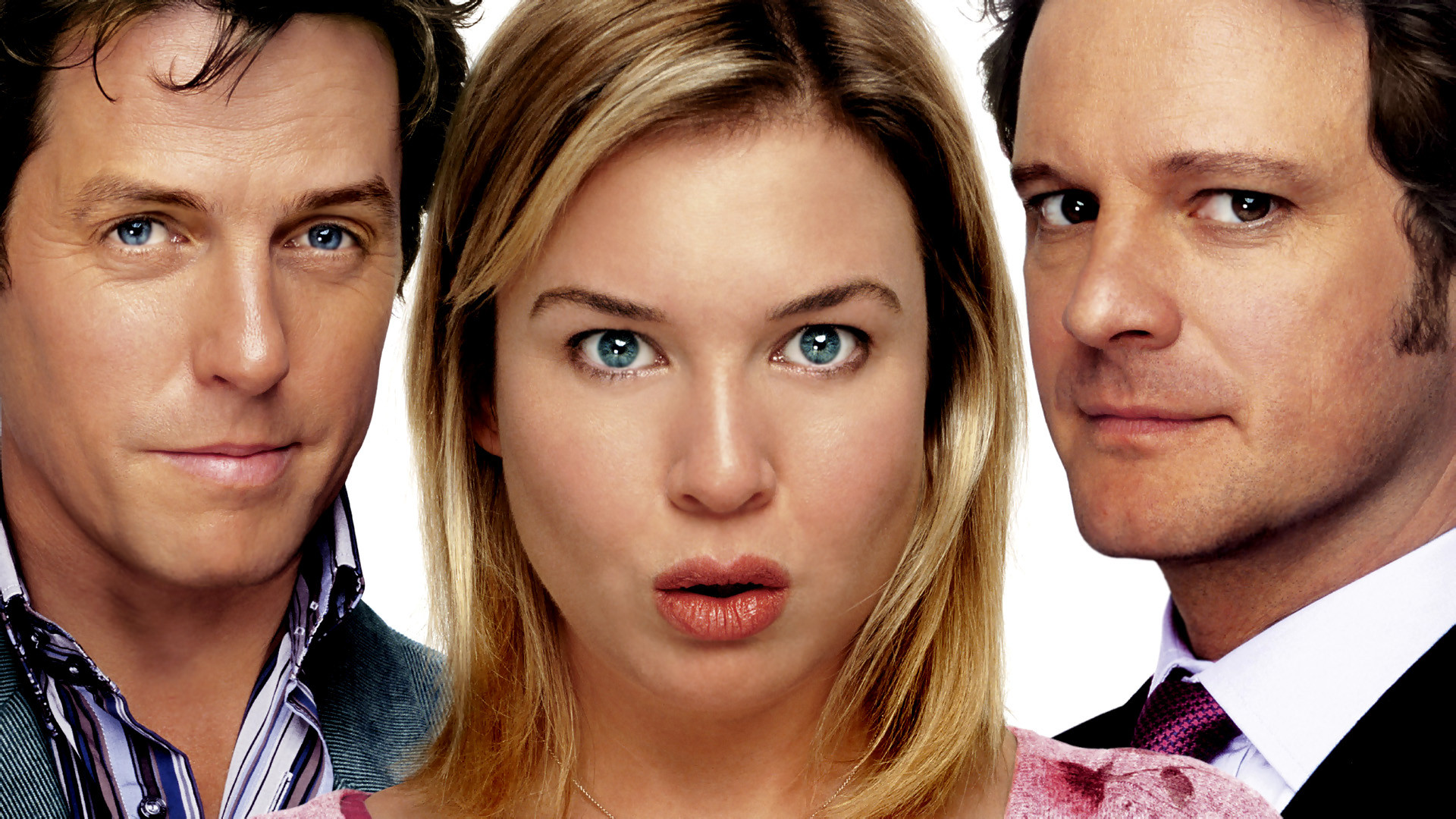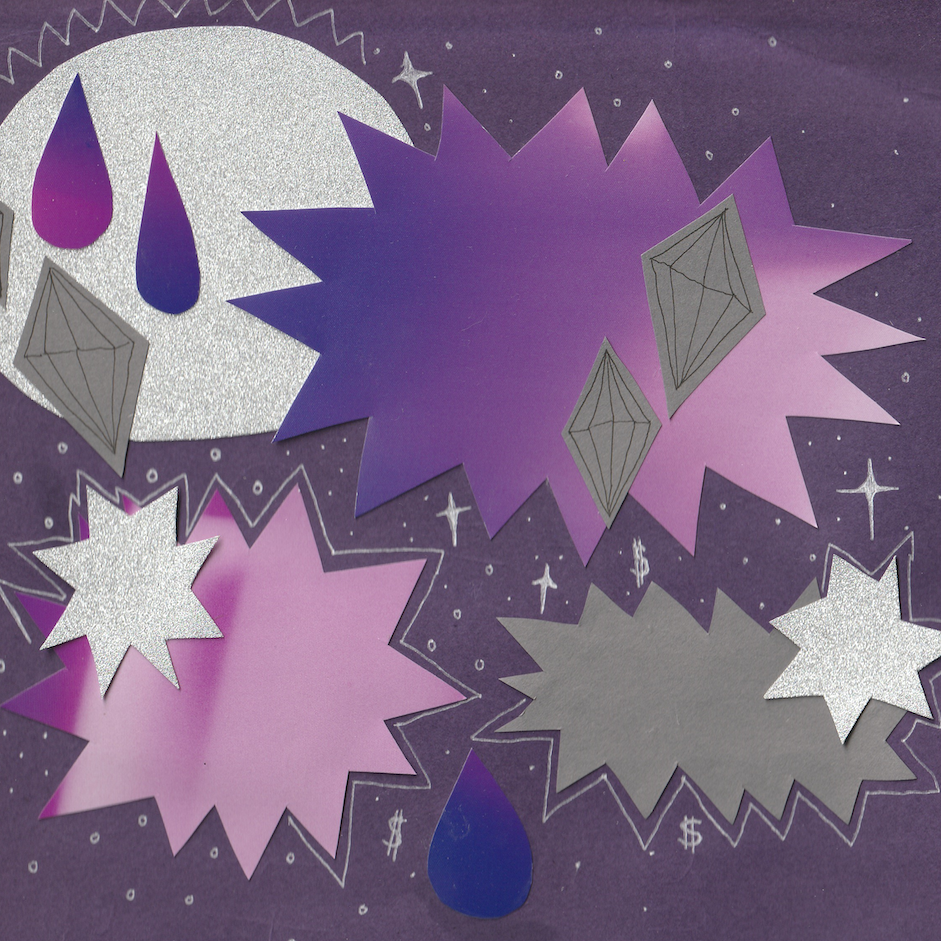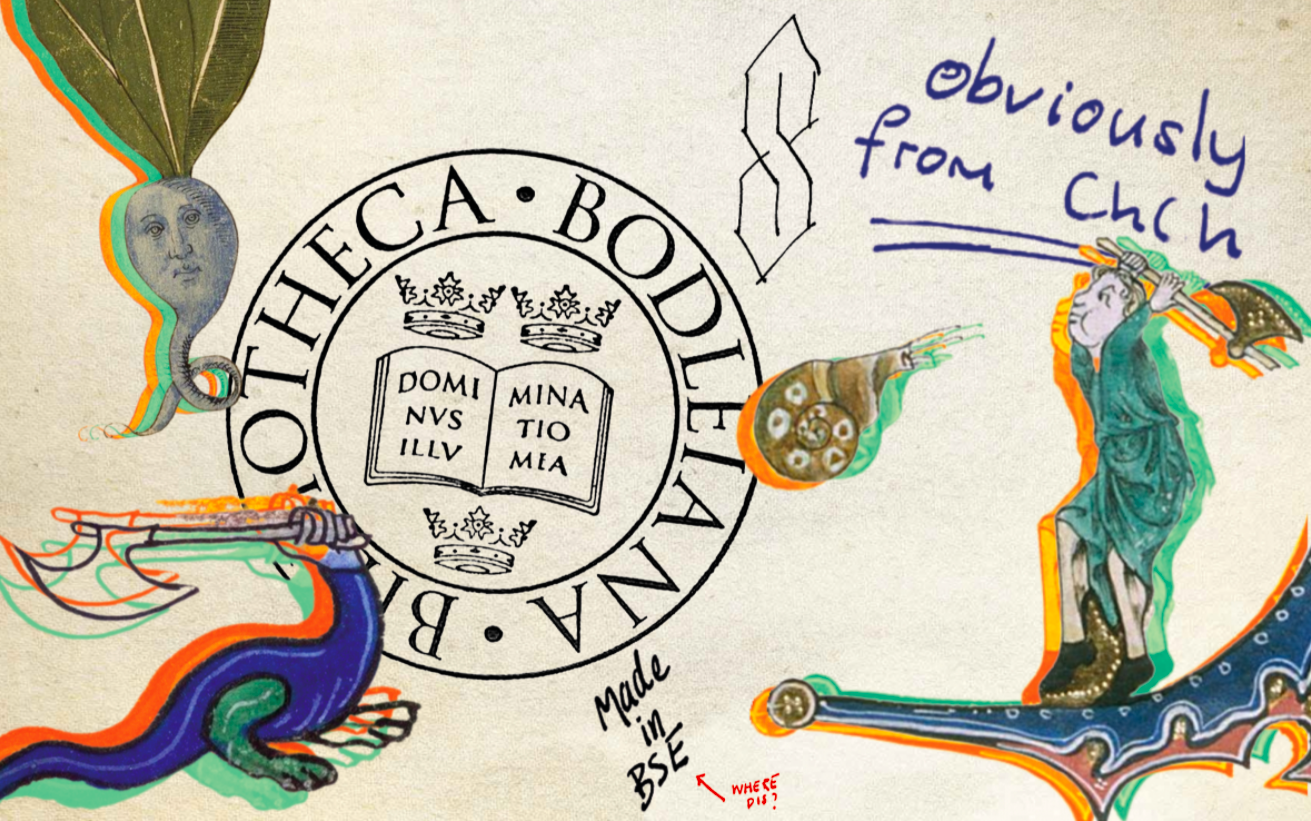
In Defence of Romantic Comedies
When I watched Bridget Jones’s Diary for the first time, I definitely wasn’t its target audience. As a twelve-year-old, I didn’t exactly identify with Bridget’s madcap single-woman-in-her-thirties antics, including answering the phone to her mum with the opener “Bridget Jones: wanton sex goddess with a very bad man between her thighs”, the fear of being eaten to death by Alsatians (big dogs, hungry for single women), the grimness of attending couples’ dinner parties for the same reason (“why are there so many single women in their thirties, Bridget?”). So I didn’t really get the romance (read: sex), but I loved the comedy. Bridget’s slightly off-time kick in the opening credits as she sobs alone in her pyjamas, the way ‘fuuuuuuuuuck’ slides onto the screen when she pretends to her fit boss she’s just come off the phone with the (dead) academic F.R. Leavis. Despite not really understanding it, I watched it every day for a week. My love for the romantic comedy was born.
As a longtime romantic comedy fan, and someone who has bled dry the Netflix rom-com section, I have some things to say about these movies. Why has the genre always seemed such a surefire hit? Firstly, and most importantly, seeing two people who are meant to be together fall in love never loses its heartwarming appeal. Romantic comedies exemplify this perfectly—you get the wish fulfilment of the couple getting together, with the light relief of (probably) some slapstick thrown in. The plots are, on the whole, mind-numbingly predictable, and therefore comforting, and the good-looking leads usually allow viewers to see past the lesser aspects of the genre, including some woefully weak scripts and generally only white, heterosexual couples. The formula of boy meets girl; boy loses girl; boy and girl get back together makes romcoms the Valium of Hollywood: pop one (on), and you’ll relax, if only temporarily.
Romantic comedies work because love makes people do silly things, and sillier comedy equals bigger laughs. Even if the screwball comedy of Renee Zellweger’s Bridget or Anna Faris in What’s Your Number? isn’t your thing, placing the characters’ emotional lives, and relationship status, at the forefront of their identity sets them up to do just about anything, expanding the movie’s potential for physical or situational comedy. What would be totally incredible in a BBC drama becomes semi-credible in a Paramount Pictures romantic comedy film. Like when Bridg runs after Mark Darcy in London, in the snow, in shimmery leopard print pants, to apologise for writing “I HATE HIM!” in her diary—her private diary, which he definitely should not have been reading. When she discovers that the reason for Mark’s abrupt departure was in fact to go out and buy her a new diary—one which, presumably, will only be full of dedicatory sonnets to her new boyfriend—it is clear that being single in a romantic comedy movie is really just a pit-stop to the conventional (and often idealised) romantic existence of ‘coupledom’, which, once reached, marks a kind of sacrifice in personal individual identity. Bridget’s diary, previously truly her own, has now been replaced with one part-owned by Mark. The negative implications of this, however romantic Mark’s intentions, are difficult to overlook.
And depressing as this is to admit, when I watch Bridget Jones’s Diary now, I can see that it hasn’t dated well. 2016 Bridget would be taking Daniel “now come over here you dirty bitch” Cleaver and Mr Fitzpervert to court over sexual harassment in the workplace, and all those comments about Mark Darcy’s “cruel race ex-wife” wouldn’t have made it past the script’s first draft, if they had even entered the writers’ heads at all. Not to mention the fact that Bridget’s early noughties London is totally and completely white and cisgender, and the film’s only non-heteronormative character is Tom, a camp fading pop star who provides laughs but fulfils the token gay best friend stereotype. Bridget Jones is still a very funny film, but its moments of misogyny and racism do present a challenge to a modern audience’s enjoyment.
And yet, Bridget is as popular as ever, with a third film in the franchise released last week. This time, the character prepares to have a baby—only, she doesn’t know who the father is! Lol, typical Bridget. Hilarity, we can presume, ensues.
Only, I’m not sure it will. While the reviews are in, and they’re not bad, I can’t help but feel that this third film is a lot more motivated by Renee Zellweger’s bank balance than it is about Bridget’s love life, which should have ended at the moment Mark Darcy wrapped his overcoat around her blue thighs. As proven by the previous outing Bridget Jones: The Edge of Reason, there’s no such thing as a successful romantic comedy sequel. This is because the outcome of the action is inevitable: the happy union of the two main lovers, who often begin the story sparring, is never in any doubt. The tropes which populate these narratives are as familiar to us as the proverb which could sum up every romcom couple ever written, opposites attract. These couples have already overcome the odds: different personalities, different interests, different backgrounds; competing businesses, mistaken identity, disapproving families, significant others. To revisit them in another movie and have to reunite them again after further obstacles is, however much we may like the characters, a fundamentally unappealing prospect.
But in recent years, there has been a new attention paid to what happens when love turns sour. US Office alum Mindy Kaling’s TV vehicle The Mindy Project follows a New York doctor, who divides her time between watching soapy (you guessed it) romantic comedies on the staff room telly and attempting to cultivate a love life worthy of her favourite films; a whirl of dates, proposals and Manhattan hijinks that could have been written by Nora Ephron in the nineties. At least, that was until Mindy got pregnant in season three, by her will-they-won’t-they love interest, Danny. This is where the film version of The Mindy Project would have ended: with Mindy’s life laid out neatly before her, as a mother and a wife living happily ever after in the suburbs, her tumultuous days as a single gal left firmly in the past. But the televisual serial format of The Mindy Project means there’s no room for such fantasy. The show is now addressing issues often deemed too unpalatable for the genre, those of relationship breakdown and single motherhood. The Mindy Project as it is now resembles a romantic comedy less and less, but it’s better TV for it. The show’s character, and creator, still love romantic comedies, but the message seems to be that you can’t live in one.
Despite the drawbacks of a lack of realism, underwritten characters and predictable plotlines, I still hold a special place in my heart for the romcoms before this new trend for unhappy endings. I enjoy the hallmarks of a classic romantic comedy film: the meet-cute, the makeover, the party, the final kiss, and the way that the better examples of the genre take pleasure in being self-referential. The Mindy Project may ultimately criticize the traditional romantic comedy’s limited structure, but it never stops being what it affectionately mocks; 2010’s Easy A seemingly took every aspect of the genre ever and formed it into an entertaining story which was truly delicious for the romcom fan. And how many modern romantic comedies have been based, however loosely, on the works of Shakespeare and Austen? These movies may be saccharine, but their stories are timeless. Even if not explicitly following the plot of past texts, references abound; a regency ball becomes a party in the Valley, the kingdom of Illyria is substituted for a football academy of the same name, the arcane ‘Fitzwilliam’ is swapped for the commonplace ‘Mark’. The multilayered providence of a good romantic comedy elevates it above any Nicholas Sparks melodrama.
For all the fun of romantic comedies, however, the genre’s wholehearted commitment to love communicates a serious and scary message. In this world, whatever the audience’s (or even the characters’) misgivings, love really does conquer all. If a flirtation starts off as a game, as in How to Lose a Guy in 10 Days (4/10, would not recommend to a friend), by the end of its allocated ninety minutes Cupid and his team of trusty screenwriters have shown us that it’s something so serious you’ll leave the job you love for it. And that arse from the bar in scene two won’t seem so bad when he’s proposing to the protagonist in the film’s final scene. Hey, they always had chemistry.
As for the future of the genre, I’d say its happiest days are behind it. The advent of the dating app looks set to be the next big change in the world of romcoms: a Tinder date romantic comedy, Worst Tinder Date Ever, is said to be in the works. But to this news, I swipe left. Where’s the escapism, or romance, in that?







